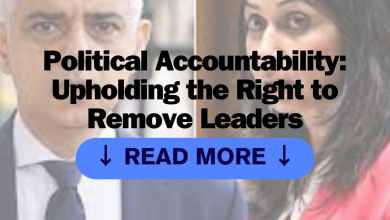The Tragic Case of Sara Sharif: A Reflection on Society’s Failures
Breaking the Silence: Protecting Our Children from Abuse
Sara Sharif’s heartbreaking story shines a painful light on the failings of our schools, society, and religious structures in protecting children from abuse. Her short life was marked by neglect and suffering, leading to her tragic death. We need to confront these failures head-on and build better systems to support and protect vulnerable children.
Signs of Abuse We Overlooked
Sara’s case is a clear example of missed opportunities for intervention. Key warning signs went unnoticed or unaddressed:
- Visible Injuries: Teachers saw Sara’s bruises, which she tried to hide under her hijab. Neighbors heard sounds of violence but did not act.
- School Withdrawal: After repeated incidents of bruising, she was pulled out of school, further isolating her.
- Witness Reports: Neighbors reported disturbing noises from the home, yet no real intervention occurred.
These signs were a collective failure. We must be quicker to recognise and act when we see children in distress.
The Role of Parents and Guardians
Parents and guardians have the primary responsibility for their children’s well-being. It’s critical to foster a safe, open environment at home.
- Encourage Open Communication: Let children express themselves without fear of punishment or dismissal.
- Watch for Behavioral Changes: Look for sudden changes like withdrawal or unexplained injuries.
- Seek Professional Help: If you see signs of distress, reach out to child protection services, social workers, or even doctors.
It’s always better to ask for help than to wait in silence, hoping things will improve.
Our Responsibility as a Community
We all share a role in safeguarding the children in our communities. Here’s how we can help:
- Stay Vigilant: Be alert to signs of abuse in children around you, not just in your own home.
- Report Concerns: If you suspect abuse, report it immediately. Let authorities investigate.
- Support Local Services: Get involved with charities, social services, or religious institutions that work for child safety.
A Call to Action
We can’t afford to be passive bystanders anymore. As parents, guardians, and community members, we must take responsibility.
- Listen to Children: Be attentive to the signs of pain. Children rarely speak up directly; their behavior often speaks for them.
- Educate Yourself: Learn the signs of abuse and know who to contact if you see them.
- Act on What You See: Don’t turn away. If something feels wrong, it probably is.
Hearing Sara’s story on the news has shaken me deeply. As I reflect on the pain and suffering she endured, I’m filled with anger and sadness. This is happening right here, in our communities. And I am certain this is not an isolated case, children are children, no matter where they are. As a mother, I feel a deep, unshakable connection to every one of them. I can only imagine the pain this innocent child endured, and in my heart, she feels like my own daughter. The pain of her suffering touches me as if it were my own flesh and blood. Any child going through this kind of abuse, feeling lost and afraid, should know that they can come to me. I will be that safe space for them. If I even hear the faintest tone of suffering in a child’s voice, I will act. No hesitation. No looking the other way.
This is what we should be teaching in our homes, our schools, and especially in our mosques. These lessons need to be spoken out loud in every Jummah Khutbah. As Muslims, our duty to protect and nurture the vulnerable is not optional—it’s a command from Allah. Too often, cultural divides and outdated practices cloud the true message of Islam. These backward ideas erode the very core values of our faith, leading to more suffering. We cannot let culture override our religion. Islam has always been about compassion, justice, and safeguarding the innocent.
The Qur’an and Hadith are clear on this. Allah says in Surah An-Nisa 4:36, “Worship Allah and associate nothing with Him, and to parents do good, and to relatives, orphans, the needy…” We are commanded to care for those in need, especially the most vulnerable. The Prophet Muhammad (PBUH) also said, “The best house among the Muslims is the house in which orphans are well treated…” (Sunan Ibn Majah 3679). There is no room in our religion for ignoring the cries of the oppressed or turning a blind eye to abuse. Protecting our children is an act of worship.
If you suspect that a child is being abused, take action immediately. Contact the NSPCC Helpline by calling 0808 800 5000, emailing help@NSPCC.org.uk, or filling out their report abuse online form. The helpline is available Monday to Friday, 10 a.m. to 4 p.m. Your call could be the difference between life and death for a child.
We cannot be passive anymore. We cannot let another child’s pain go unnoticed. These conversations need to happen in our homes and our mosques, so that every parent understands their responsibility—not just to provide, but to protect and listen. This is the change we need to make for Sara and for every other child suffering in silence.


